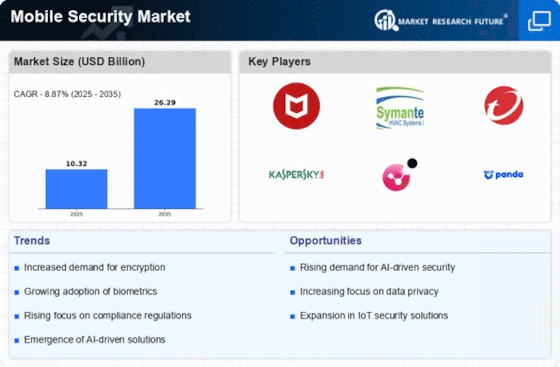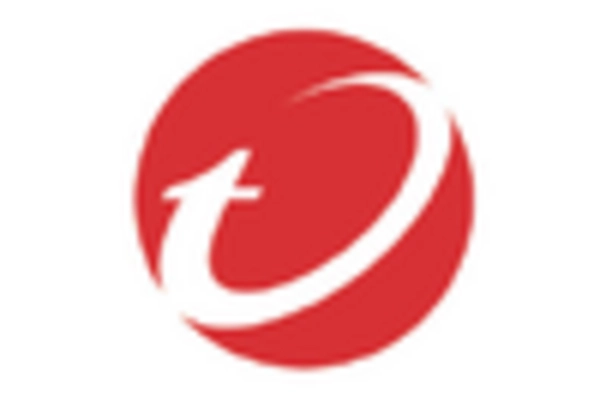Market Analysis
In-depth Analysis of Mobile Security Market Industry Landscape
The mobile security market characteristics are defined by intricate associations of many different variables, which reflect the dynamism of the cybersecurity and technological development scenes. With the growing use of mobile phones and tablets by individuals and professionals, robust mobile phone security systems have been increasingly sought out.
The central element that sets those market trends in motion is a rise in the number of mobile device-specific cybercrimes per year, becoming more complex. With people and associations now strongly rely on mobile devices for communications, transactions, and storage, cybercriminals have upgrade their tactics by targeting weaknesses inherent in mobile. This has particularly led to a strong drive for state-of-the-art mobile security measures that are not only effective in curbing threats but most importantly data security.
Apart from that, administrative integrity requirements are also identified as the critical parameters and therefore contribute to the improvement of mobile security market. State companies and government registries generally are struggling to develop and implement strict measures to protect consumer information and ensure secure functionality of mobile networks. Governments and organizations have been forced to invest heavily in mobile security solutions to comply with the maturity model and still inspire confidence among customers.
The rapid speed of technology advancement is also among the strong factors which impact on the information security market elements. Since mobile devices become increasingly smart and loaded with rich functionalities, they become potential targets for digital threats. Therefore, security service providers will be perpetually compelled to be a step ahead of the game by designing ground-breaking technologies that will effectively annihilate new and emerging risks. This creates an exciting and dynamic environment where mobile security providers compete to out perform each other with the most robust and innovative solutions.
The emerging consciousness among customers and undertakings about the implications of mobile safety significantly impacts on market factors. As the increasing number of celebrated security breaches are highlighted on the news, customers are becoming more prudent and conscious with their choice of mobile devices and applications; they carefully pick the features that prioritize security concerns. Consequently this has created a competition environment where vendors are striving to intensify their security features, provide regular updates, and keep a truthful business behind mobile security issues.


















Leave a Comment